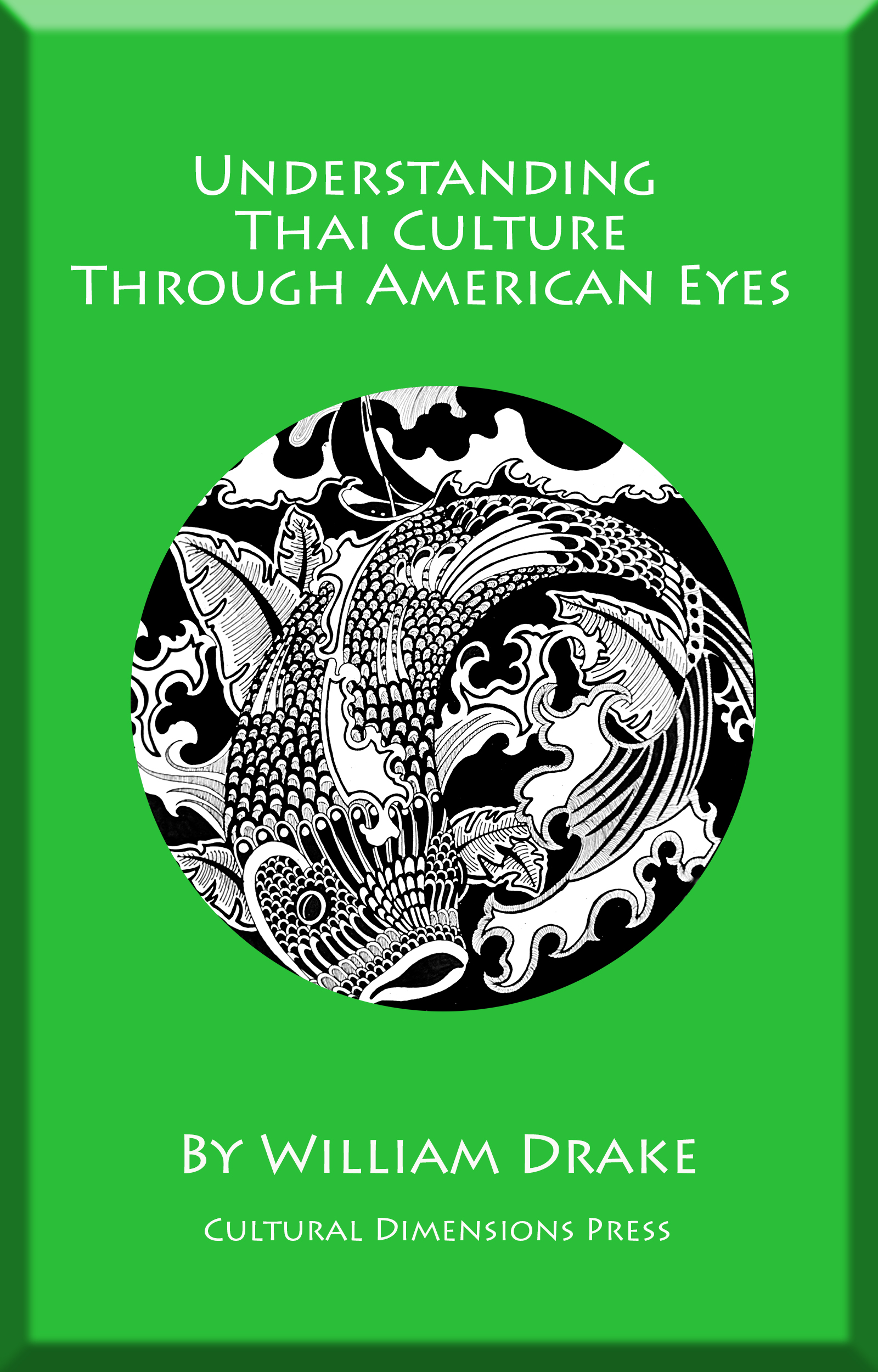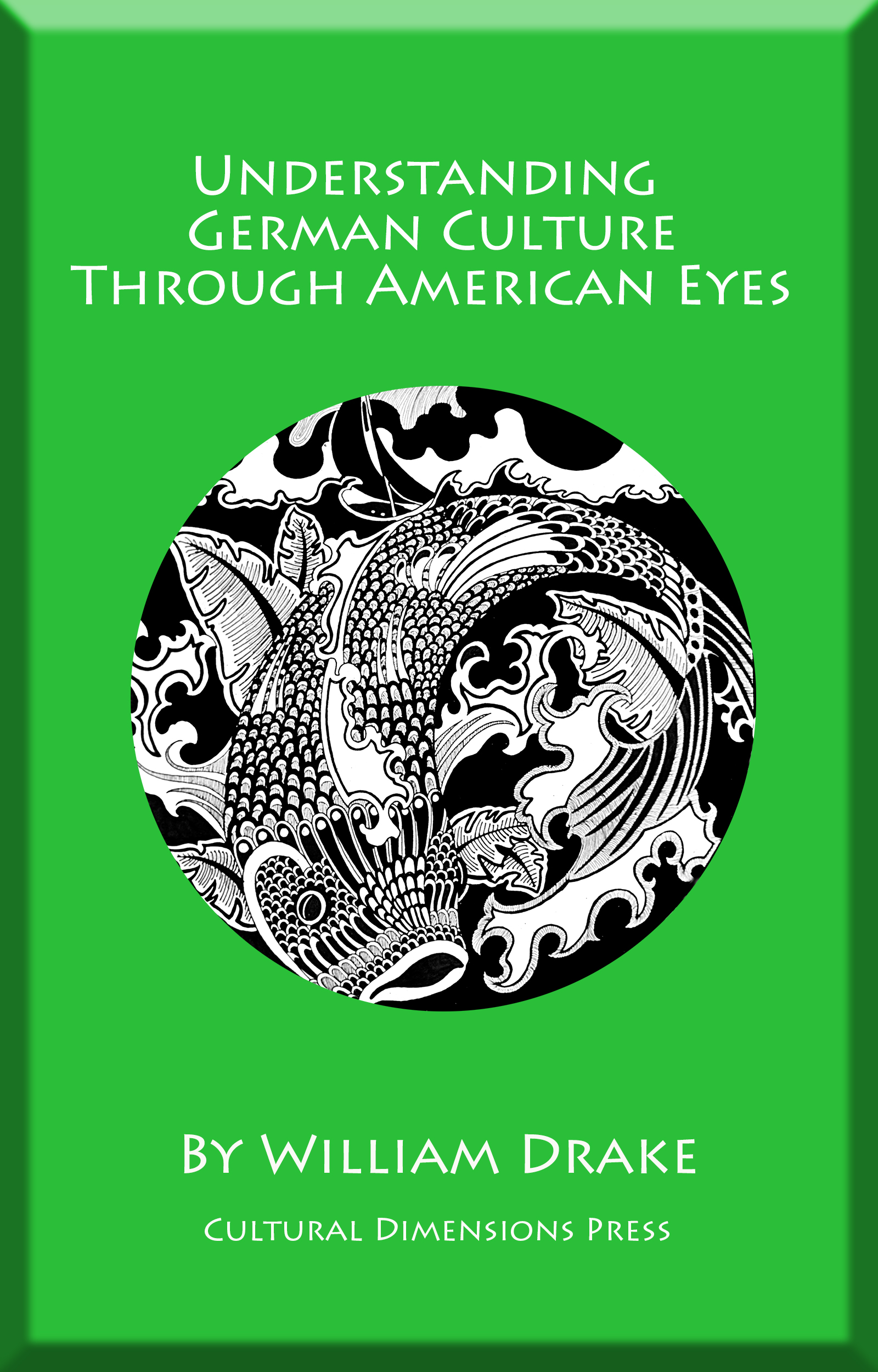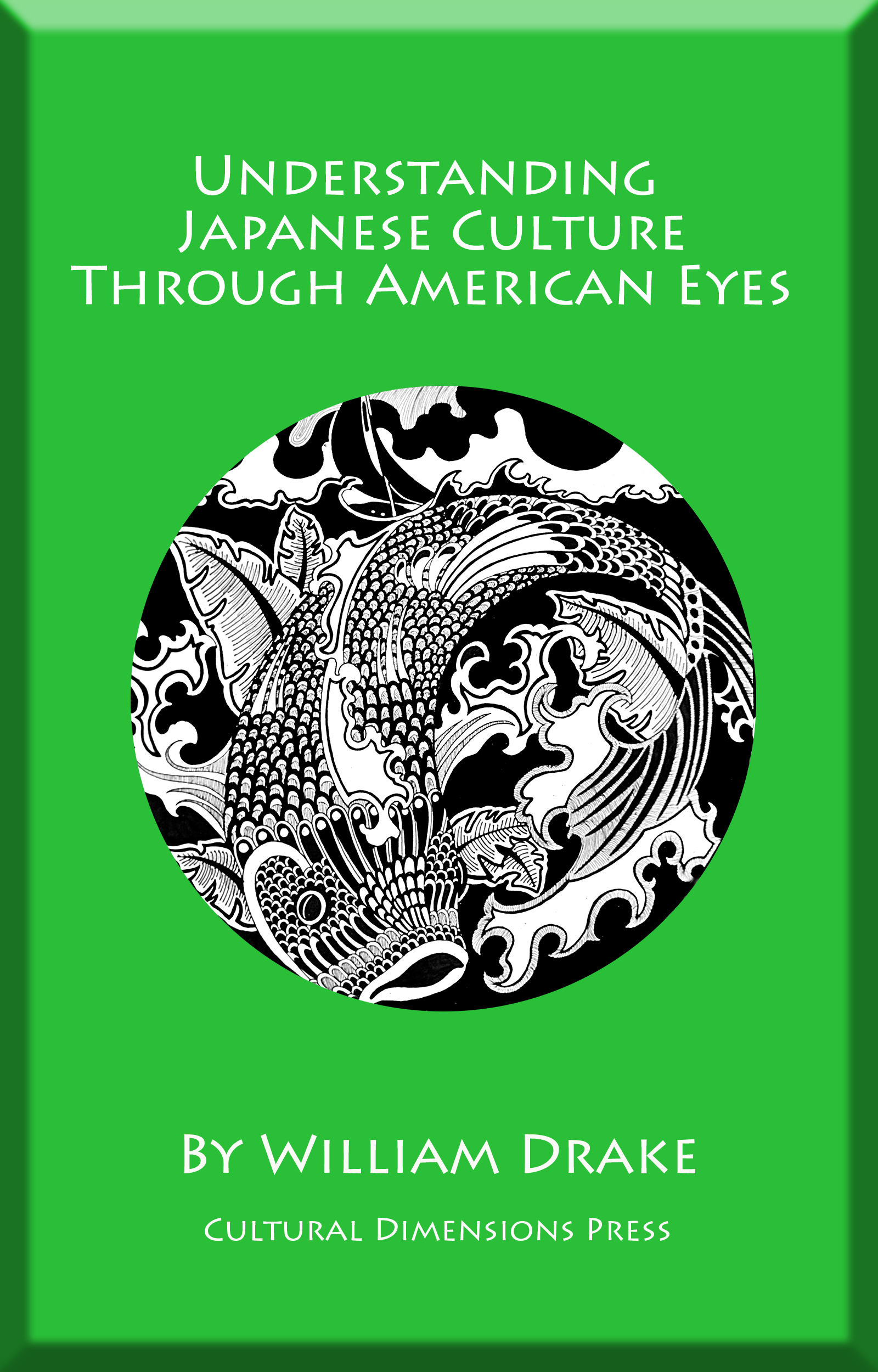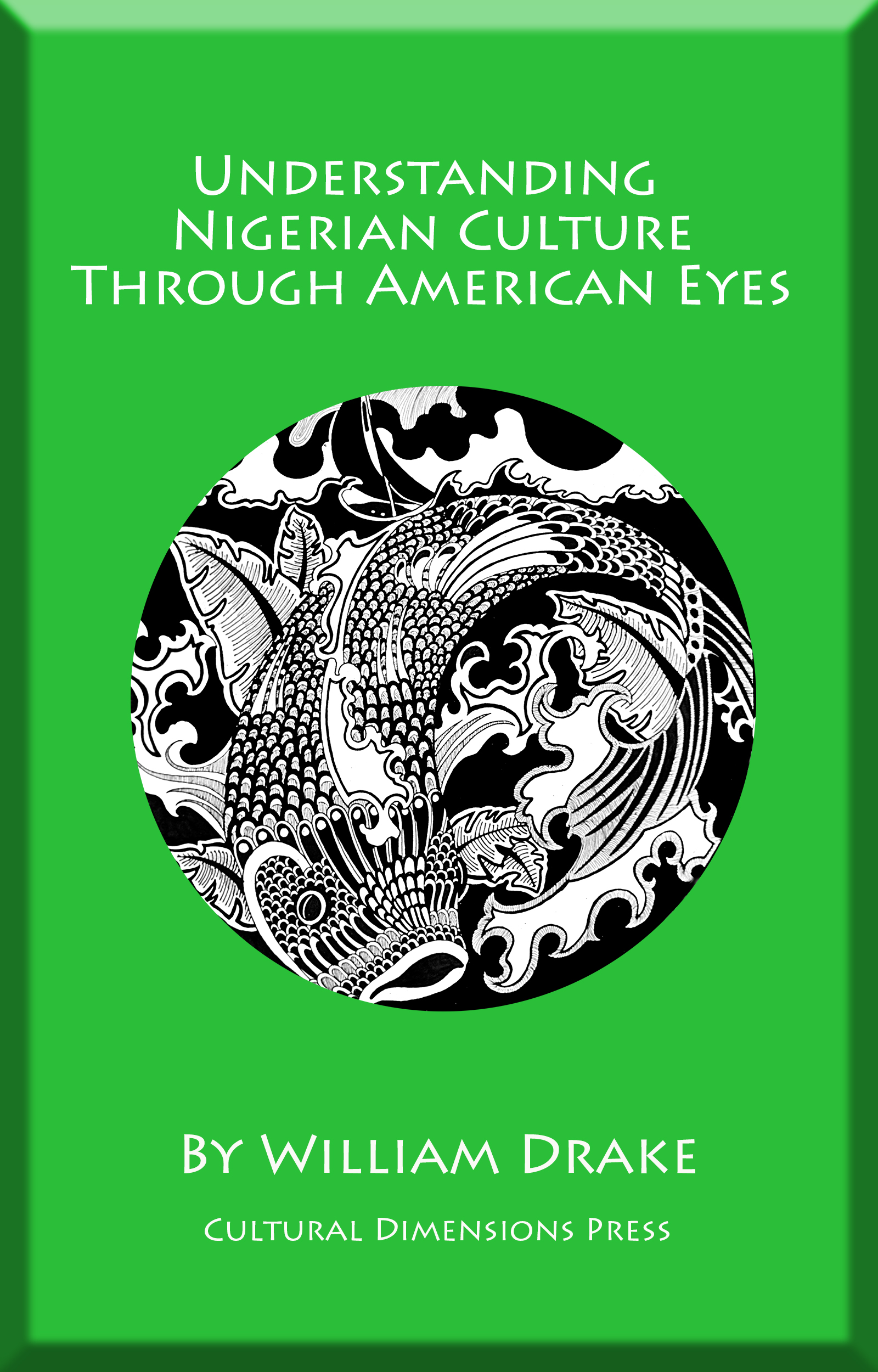Smoke No Evil

I wrote this book to document what I have learned in over 50 years of research and lab testing about the true and completely concealed cause of so-called “smoking-related disease” that continues to destroy millions of smokers and families worldwide every year. However, I demonstrate with hard evidence and published research that many if not most “smoking-related” deaths are preventable with a new, evidence-based approach that involves simply regulating pesticides in Tobacco Cartel products using existing consumer product pesticide residue limits as the standard.
Ludicrously, Tobacco Cartel products are currently exempt from pesticide regulation worldwide. This book documents what the Cartel has known and kept secret for generations: that smoking-related disease and death may be caused not as much by Tobacco as by exempted & concealed super-toxic xenobiotics used by Cartel companies purely to boost profits, free of any effective regulation.
I don’t claim in “Smoke No Evil” that smoking Tobacco, even organic Tobacco is actually safe, mainly because there has never been a single study of the safety or harm of smoking just tobacco; I do say that inhaling a proven carcinogenic/neurotoxic/genotoxic fungicide/insecticide cocktail a hundred times or more a day, from whatever source, combusted or vaporized, will surely and certainly destroy human energy, health & life.
This book offers hard evidence, new facts, and numerous peer-reviewed research citations to raise awareness that the Tobacco Cartel has, in plain view, engaged in a trans-generational conspiracy to commit crimes against humanity on a scale beyond imagination. I hope that you’ll consider the evidence on its merits.
Understanding World Cultures Through American Eyes
In addition to my lifelong passion for searching out and trying to understand natural Medicinal Plants I’ve had an equal passion for experiencing and trying to understand the cultural ecosystems we all inhabit together and also apart on this planet, each of us in our own self-reflecting bubble world along with our cultural kind. There are so many varieties of us human beings on Earth, and so many diverse ways that life is experienced, seen, felt, shared and understood, that in my writing, teaching and training I’ve tried first to understand and then to express in writing what is often difficult to say simply when speaking about cultural differences.
I realize that when I get into explaining some aspect of culture like a professor rather than describing like a participant the writing can get dense. Still, these books are 100% about what fun we all are in our cultural glories and weirdness – our values – what is good and bad, right and wrong, true and false; our beliefs – what’s real, what’s true, or what’s desirable, what we think is funny and what we think is forbidden; our norms of behavior and interaction that always seem so – normal – to everyone within a culture and often so incomprehensible to others; , our assumptions the meaning of life, the value of relationships, and all the other ways we mentally and emotionally organize our own and each other’s lives.
We are all such wonderfully multi-plumaged creatures, like rainbow flocks of Flamingos I saw in the salt lakes of East Africa on a visit while serving in Peace Corps – simply beautiful in our joys and struggles and pairings with each other. I try to write from such perspectives about my own culture and other cultures that I have loved, worked and lived in, and studied throughout my life.
“American Eyes” is my newest (2018/19) cultural awareness series and includes Thailand, Japan, Australia, The UK, Germany, The Netherlands, and Nigeria. In this series I try to achieve and express an understanding of some of the world’s most challenging cultures for someone from an American cultural background and perspective. Here’s an excerpt to give you a flavor of the series.
Understanding Thai Culture Through American Eyes

Understanding Deference
One of the most difficult Thai concepts for Farangs to comprehend is the behavioral pattern known as Krengjai. Krengjai is a combination of deference and consideration toward all others, with special attention to the rank and place or the other. In Thai society, with its emphasis on social place, krengjai is most often an attitude displayed toward a person higher in the rank, social status, or age scale. It is diffidence, deference and consideration merged with respect. It also includes the outer display of proper and appropriate behavior even in difficult circumstances.
Expatriate Voices
“I also find it interesting and somewhat revealing that the Thai language does not have a single word for “Stranger”. The most commonly used expression for stranger is “Khon plairk na” (literally “person strange face”). My own dictionary also lists “Poo ma mai” (literally “person comes new” – I suspect that “newcomer” would be a fair translation). I’ve also heard “Khon tee mai kheuy hen (ma gonn)” which could best be translated as “Person never seen (before)”.
“I think that it would be mischievous to suggest that because there’s no single word in the Thai language for stranger that there’s no such thing to a Thai person as a stranger. But I do strongly suspect that the omission in the Thai language of a single word for stranger and Thai peoples’ behavior toward all people whether known to them or not indicate that Thai people feel to be very connected with one another, very connected with their local community, and very closely connected with all people, strangers and colleagues alike, with whom they come into contact in the realm of their everyday experience.”
http://doodeesthailand.blogspot.com
To the Farang with his emphasis on equality, frankness and directness, this tendency to show deference and avoid imposing upon someone can appear to indicate a lack of initiative, weakness and subservience. These qualities will hardly recommend a person for advancement in the Farang business world, so they are not practiced or displayed, but Farangs must understand the role of deference, or Krengjai, in dealing with the Thai business world as well as Thai people in any context.
It can be taken as true that Thais are generally not impelled in their behavior or attitudes by the Calvinist work ethic of Western industrial society. Their responsibilities lie first with their family and friends which along with their religious obligations are paramount. That is to say, allegiance, obligation and responsibility lie elsewhere than to the boss, job, or factory. This extends to the servants in the home who, without prior notice, may leave with no reason given. The servant, on his part, may feel that he is being kind and considerate and deferential in not overtly and directly breaking the relationship.
For a Thai person, there is a life-long debt relationship to your parents for having been born and brought up. A Thai person must constantly repay this debt through kind and generous behavior. They can never totally repay favors and support given. Thus a Thai child remains eternally grateful and continually committed to his parents even after their death. Obligation to one’s parents is a cultural and moral imperative in Thai society. It is impossible to transfer such responsibility to impersonal institutions.
Understanding Conflict Avoidance
In general, perhaps the most pervasive of Thai cultural imperatives is the personal avoidance of social confrontation. One of the factors determining such behavior is Buddhist teaching which places a positive religious value on the avoidance of emotional extremes, commitment, and confrontation.
To the American, confrontation and conflict are the norm in many kinds of interpersonal situations. It is not only acceptable but often appropriate to speak bluntly and frankly. Criticism and argument in an overt and public context are not necessarily to be avoided. In Thai society, on the other hand, a positive value is given to avoiding confrontation and even the overt expression of anti-social emotions such as anger, hatred and annoyance. While desirous of being sympathetic, compassionate, generous and kind toward others, there is, at the same time, a bias toward avoiding emotional extremes. Resolving conflicts usually takes the form of compromise, with an attempt to avoid the jagged emotional edges of direct confrontation and the attendant displays of anger, annoyance and even hatred.
Expatriate Voices
“One of the defining qualities of Thai people is the fact that they rarely show strong emotion in public. You’ll find that it takes quite a lot to make a Thai lose his/her temper and if they do it is a very serious matter. If you’ve done something to make a Thai person lose their temper with you I suggest you immediately attempt to either diffuse the situation or remove yourself from the situation.
“Jai yen literally means ‘cool heart‘. In a country that’s 95% Theravada Buddhist, jai yen is the preferred approach to any situation. If a cop pulls you over and sticks you for a bribe, jai yen dictates that you pay it to avoid an unpleasant scene. If someone cuts you off in traffic, you shrug your shoulders and suppress your natural urge to run the guy into a ditch. Jai yen. For Buddhists, an emotionally moderate, non-confrontational approach to life will bring its reward when you are reborn. Practice jai yen, and you may come back as a demi-god; get a little hot under the collar and you may find your new, single-celled self bobbing on the surface of a sewage treatment plant in Bang Saphan.
Steve (at) http://www.thailandmusings.com
Understanding Face
Saving face is of paramount importance. Most Thais are far more concerned than most Americans with the form and the appearance of harmony rather than with the bedrock actuality. Better to preserve a satisfactory form than unearth a disturbing reality. The very use of the term “reality” in this context displays a cultural bias, for, to Americans reality IS the substance or content. The Thai concern for maintenance of the proper forms looks hypocritical to Americans, who view the form as meaningless if it masks a contradictory substance. Thais would not think of the form as masking reality, for to them the form itself has a reality which is in many ways more important than the substance or content.
To most Americans it is an offense to accept an invitation and not appear. However the Thai, in his own cultural terms would prefer to avoid offending by the abruptness of a refusal of an invitation graciously tendered and would not consider his non-appearance at the function unusual. The American prefers to be told in direct face to face contact if someone disagrees with him or is hurt or offended by his behavior. To the Thais such confrontation is socially unacceptable, emotionally uncomfortable and to be avoided. The Farang, coming to Thailand with his cultural baggage filled with concepts of equality, frankness and direct confrontation, expects his Thai colleagues and subordinates to show less deference and more initiative, to be more argumentative. The Thai employee or counterpart, adapting to the cultural realities of the Farang world comes to realize that his Farang colleague often wears his “heart on his sleeve” and is not reticent about showing either his pleasure, friendliness or annoyance openly and with gestures.
The Coca Leaf Papers – Three Hundred Years Of Mama Coca
This remarkable collection of long-lost books on the sacred Coca plant offers the curious reader an in-depth look at original medical and scientific source materials from the 1800s on the remarkable medicinal properties of Erythroxylon Coca. This book would be over 800 pages if printed and includes newly digitized full editions of five long-lost books on every aspect of Coca. Bibliography references at the back of each book are hyperlinked to contemporary digital editions of those other even more rarely-seen books. This is a treasure of Coca knowledge gained through over two centuries of exploration, experimentation, and full development of Coca as a natural medicine of unsurpassed powers. Almost all of this knowledge has been lost as a result of having been actively suppressed for generations by a combination of corrupt government bureaucracies, venal corporate exploiters, and hypocritical moralists – none of whom care at all that pure, natural Coca Leaf has been proven beyond any doubt to be a safe and effective treatment and cure for dozens of major conditions and diseases that “modern” medicine cannot address.
Hyper-Migraines & Exploding Brains: The Suppressed & Forgotten Coca Leaf Cure (2014)

Because of my personal interest in finding a cure for Migraines I was drawn to the research done in the 1800’s by pioneering doctors and scientists on the use of pure, natural Coca leaf teas, tonics and extracts in treating a wide range of nervous system diseases. This book offers readers a detailed look at the work of one of the since-forgotten pioneers in the field, Dr. William Searles, a New York homeopathic physician whose impeccable research and incisive writings reveal the truth behind the existence of a simple, natural cure for Migraines.The Cultivators Handbook of Natural Tobacco (Kindle eBook) (2010)
The Cultivators Handbook of Natural Tobacco (Hardcopy Edition)

In the late 1970’s I began to research the role that pesticides and chemical contaminants play in the overwhelming number of deaths caused by the cigarette industry. I was drawn to this research by my own experiences with native strains of natural tobacco in Africa, where I served with Peace Corps, and in South America where I had traveled and lived extensively. Living at the time in the American Southwest I became friends with a number of Native Americans who introduced me to their native Tobacco called “Punche”, and I realized that real tobacco had nothing at all to do with what the murderous cigarette cartel was pushing. Out of this grew a little company I started with a good friend Robert Marion called “Santa Fe Natural Tobacco Company” and a brand of organic cigarettes that is very popular worldwide today – American Spirit. This book offers the reader everything you need to know to grow your own stash of real, natural tobacco and shows you the hundreds of choices of tobacco strains available for home-growing, from the light and aromatic Latakias and Shirazi of the Middle East to the nuclear meltdown cigar tobaccos of the Caribbean like Jorge Grande.
The International Cultivators Handbook: Coca, Opium & Hashish (Kindle eBook) (2010)

The International Cultivators Handbook: Coca, Opium & Hashish (Hardcopy Edition)
This book was originally published by Wingbow Press in 1974 and, fortunately, when it went out of print years later the rights reverted to me, so I have been able to update and greatly expand its contents. When this book was first written I had to rely on traveling in the Middle East, India and Southeast Asia for on-the-ground research and visiting some of the great libraries of the world like the League of Nations library in Geneva and the Library of Congress in DC to do historical research. Today with the internet I have tried to pull together vastly more detail and to offer the reader a more meaningful reading experience. In this I hope that I have succeeded.
Marijuana Foods (1984)

Unfortunately this book has not been updated since first published by Simon & Schuster in the early 1980s, although I have tried to convince the current publisher that it badly needs updating, without results. That said, I am still proud of the fact that this was the first book to bring critical information on alternative medical uses of dietary Cannabis to readers, and many of the recipes have received critical acclaim and still offer real value to the reader who needs a medical alternative to smoking.
The Cultivators Handbook Of Marijuana
My “Cultural Dimensions Of Expatriate Life” Series
This series of books has been inspired by my experiences living in other countries and trying to figure out how to not merely fit in, but how to become fully integrated with the culture of the people whose communities were my home. I realized early on that my primary task wasn’t how to figure out “them” but how to figure out “me” – in other words, unlike how many people approach learning about another culture by studying how to hold a cup of tea and when to bow, I realized that my first task was to become aware of and to manage my own “American-ness” in the context of another culture. These books are the result of those efforts. More directly, these books arise from fifteen years of wonderful experiences I had running my own cross-cultural training company and working both with outward-bound Americans as well as with inbound people from around the world who were coming to American to live and work. I owe everything I have learned to all of the dear people who I have lived among and worked with throughout my life, and any insights that I am able to offer are strictly to the credit of these thousands of friends, neighbors, colleagues and teachers. In that spirit I offer this series for anyone who wants to go beyond what the conventional guidebooks will tell you about another country and to hit the ground running, fully prepared to learn from developing an acute cultural self-awareness while experiencing the intricacies of the cultural dimensions of the country where you have come to live and work.
“Cultural Dimensions” Audiobooks
All of the books in the series listed below are eBooks for the Kindle and any device running the (free download) Kindle app, and are priced at the minimum of $2.99 required for the Amazon “Select” program which, among other things, allows enrolled readers to borrow rather than buy them. The exception to this is the first book in my new project with the Audiobook producer ACX – the Audio version of “Cultural Dimensions of Expatriate Life in The UK“, which is narrated by Kate Sample, a well-known book narrator who works as “BostonBritVoice“. I hope that you’ll visit the audiobook link above and give a listen – Kate’s voice is delightful and if you are UK bound I think you’ll find the information useful and the audiobook format (which by the way is synched with the eBook content) quite convenient.
Understanding Australian Culture Through American Eyes
We have discussed one stereotypical picture of the “real Australian” male – individualistic, self-reliant, loyal to his mates, suspicious of authority figures, disliking pretension or snobbery. The “bush” existence which prized and encouraged these characteristics is in reality remote both in time and place despite its lingering hold on the popular imagination.
In fact Australia is one of the most highly urbanized countries in the world. Seventy percent of the population lives in the eight major cities, with only fifteen percent in rural areas. The average Australian lives in a suburban world with little need to conflict with authority and indeed requiring authority and order to function. The acceptance of decisions by authorities is probably more unquestioning than in the United States. Despite a widespread scorn for politicians, Australians often sneer at the “stirrer” (agitator). There is a residue of the British attitude of “mustn’t grumble”.
There is one particular kind of authority figure that it can be said 99.9% of Australians detest – the Wowser. (The exception would be the 0.1% of Australians who are, in fact, wowsers.) ” The word “wowser” is a peculiarly Australian insult, one that goes back to the earliest days of the colony when, besides convicts and guards, practically the only other people out from the old country were missionaries – many of whom were, in a word, wowsers.
In 1910, William Holman wrote:
“A wowser…is a man who, being entirely destitute of the greater virtues, makes up for their lack by a continuous denunciation of little vices.”
In 1912, John Scaddan, the premier of Western Australia, noted:
“A wowser is…a person who is more shocked at seeing two inches of underskirt than a mountain of misery.”
In 1960, Eugene Gorman QC wrote:
“Wowser is a simple, satisfying, succinct, single word which aptly distinguishes the whole race of windy, watery, cantankerous, snuffling Chadbands, Stiggines, Holy Joes and Scripture-sprouting sneaks, hypocritical humbugs, and unctuous, dirty-minded rotters, who spend their time interfering with the healthy instincts and recreations of healthy-minded, honest humanity.”
One has only to think of the numerous Wowsers who dominate the media and public life in America, especially with the current creeping misogynous blending of politics and religion, to realize what the Australian public must be thinking of the ongoing spectacle of wowserism we present. Be assured that not long after you arrive in Australia you will begin the process of explaining, and demonstrating, that you are not at all like “that kind” of American to almost every Australian you meet, who will be friendly but skeptical until they have seen your mettle actually tested.
Cultural Dimensions Of Expatriate Life In Chile
The old U.S. expression, “It’s a man’s world,” might be echoed by some Chilean women. Enshrined in the Napoleonic Code which provides the basis of Chilean law, men do have more rights than women. In addition to juridical considerations, the society accepts, indeed encourages, certain behavioral patterns in men such as: experience and prowess in sex; a disdain for “women’s work” in the kitchen, laundry and nursery; a protective attitude toward family women and girls; and a highly developed sense of dignity and honor that may need to be defended occasionally, probably verbally.
Since middle-class and upper-class women tend to have help in the kitchen, laundry and nursery, whether or not the men are pulling their share is not a burning issue; however, poor women who have few resources or labor-saving devices get overburdened.
There is a sort of “boys will be boys” attitude that is sometimes inculcated in male children by the same women who profess to be dissatisfied with the greater freedoms the husbands have. As elsewhere, the “nature or nurture” cause of human behavior is discussed by intellectuals wondering whether men are biologically assigned to run governments or whether they just got there before the women and perpetuated a good thing.
What is clear is that the Chilean women are special. Famed for their beauty and charm, they have also boasted professionals for generations. Doctors, lawyers, judges, senators, dentists, sociologists and businesswomen are nothing new. The extended family and the presence of live-in help to care for young children make it easier to have both a career and a conventional family for the professionally minded woman than for her U.S. counterpart.
The lower-income nannies are frequently taking classes whenever they can fit them in and many are highly motivated to study as best they can, despite economic deprivation. Some take on the values of the homes which they serve, and find upward mobility much less difficult philosophically than financially. Due to the expanding Chilean economy, there is an increasing demand for, and therefore scarcity of capable domestic helpers.
A reciprocal set of complementary manners is performed by each sex: men open doors, light cigarettes, seat at dinner, etc., while women get the men’s plates of food for them at buffets, season salads and the like. These small courtesies seem to indicate a concern for one another’s welfare and no larger psychological message than a not-so-hidden desire to be hospitable. Americans will recognize much Chilean behavior in our own etiquette books or grandmothers’ houses when the pace of life was more gracious.
One exception to the general mode of male/female politesse – “piropos”, or cat-calls, directed especially at foreign women are very common. Although usually no harm is meant, it can be offensive. The best advice is to ignore the intrusion, since any objection or even eye contact usually results in an escalation of the offending behavior as the perp shows off to his friends.
Cultural Dimensions Of Expatriate Life In China
Chinese people are acutely sensitive to their reputation, image, and position within the society of their peers, superiors and subordinates.
The influence of “FACE” or MIANZI should never be underestimated because it is a constant concern of everyone you deal with in China. In many cases FACE is a high priority to them as they calculate the costs & benefits of dealing with you, accommodating your request, and sharing information with you.
This means that how you affect their FACE affects your ability to accomplish your objectives. Because you are affecting your Chinese counterpart’s FACE regardless of whether you know it or not, you are affecting your own effectiveness at every step of the way, whether you know it or not.
The reason why a clear understanding of FACE is vital for American business people is because we don’t really have an equivalent concept, so it is difficult for us to understand what face even is, much less how to influence our Chinese business associates in positive ways using our knowledge of FACE.
FACE has been given many different explanations by westerners. It has been compared with our concepts of dignity, self-esteem and pride, but these are superficial comparisons. The reason westerners have a hard time grasping the deep meaning of FACE is because it reflects a uniquely Confucian point of view -the seamless integration of the person with the group. It is the “seamless” quality of the integration with the group that is key for westerners to understand.
While Americans belong to groups and many of us identify strongly with some of our group associations, most of us distinguish at some level between our personal interests and agendas and that of the group. In a classical sense, Chinese culture teaches its members that there is no point at which the group’s interests end and the individual’s interests begin. That is what is meant by “seamless” integration, and each of us must decide how this core difference will affect our business in the PRC -the only universal aspect of this difference is that it WILL affect every business relationship between Americans and Chinese.
Cultural Dimensions Of Expatriate Life In The Czech Republic
Politeness is such a pervasive value in Czech society that you will encounter it everywhere – on the streets, on public transportation, in cafés, even among close friends who, in the United States, would ignore politeness and “get straight to the point”.
Observe that group of young Czech students sitting together over coffee at the sidewalk Café. Yes the conversation is animated, and yes everyone has an opinion and voices at – but notice also that there is all most a “take your turn” quality to the conversation, no matter how animated it may get. Notice also that when one person is speaking the others tend to be listening rather than trying to jump in with their own opinion on top of the one who is speaking. You may notice also that when there is disagreement is rarely expressed in a confrontational style. If you speak Czech you will hear phrases like “yes, but have you considered…” or “well I see what you mean, but I look at things differently.”
And this is among students! If you are listening to a conversation among older Czechs you will observe all of these qualities in spades. Older Czechs are careful not to be too loud or too expressive in public, and a reserved demeanor and thoughtful style of self-expression are the norm in Czech society. Arguments in public, even if they are over controversial topics and not emotional conflicts, are literally frowned upon by those nearby. (The exception may be discussions involving soccer.)
A good general set of guidelines for public conversation whether at a café or in someone’s home over dinner would include the following observations:
Be respectful of everyone in the group by listening to their opinions and not interrupting when they are speaking. Many Americans have a hard time waiting their turn in conversations, usually for fear that someone else is going to dominate and they won’t be able to express their own opinion. This usually won’t happen among Czech friends, where making sure that everyone has an opportunity to be heard is a core value. And, by the way, all members of any group have equal privilege when it comes to being heard whether they are younger or older, male or female, native or non-native Czech. (Young Czech males are un-learning some of the more obnoxious chauvinism of their elders.)
If you are a native English speaker in a group of Czech friends or associates try to speak at a moderate pace – not so slowly that you appear to be talking to someone retarded, but slowly enough that those who speak English as their second language don’t have to ask you to repeat yourself because you were speaking too quickly. Along with speaking at a moderate pace, your Czech friends will appreciate it if, when you use the vernacular language (slang) you make sure that what you are saying is clear to everyone. Czechs love slang in their own language and are always interested in learning new English slang, so if you use an expression they haven’t heard before it is a conversation stopper until everyone not only understands what it means but has had a chance to discuss its linguistic and (sometimes) literary implications.
Finally your Czech friends and acquaintances will be delighted to have you attempt to communicate in their language and if you ask them to, they will be glad to help. If you don’t ask, for the most part your Czech friends will not correct your language, but they will still be happy to see that you are making the effort. Along these lines, any official or important business or personal communications that are written should be passed by a native speaker to ensure legibility because the written word has far more precise requirements than spoken language.
Cultural Dimensions Of Expatriate Life In Egypt
Many popular leaders actually owe their power with the masses more to eloquent use of the language than to their actual deeds. President Nassar was one of the all-time great examples of this charismatic style of leadership. Grand promises and visions, exaggerations and hyperbole, creative insults- all are meant to make an impact on the listener rather than to simply convey content. When western TV viewers see Arab leaders pounding their fist, waving their arms and threatening so drive the Israelis into the sea, we tend to interpret these gestures and threats the way we would if one of our own western leaders were saying and doing the same thing. In other words, we react to the content of the speech. In the Arab world, most who see and hear such a speech are not listening to the words as an expression of intent, but to the emotions and images created by the speaker which are intended to mirror the frustrations, hatreds, and prejudices of the audience in a way that creates a bond between leader and followers.
The Arabic style involves energetic gestures, intensity of tone, frequent use of colorful and to-the-point oaths, ( but not obscenity), people speaking all at once to outshout each other, half-humorous threats with just a touch of menace, strangers & bystanders jumping in to comment freely, and multiple challenges to the sincerity or truthfulness of the speaker.
This sort of behavior is acceptable among Arabs in social situations when the people know each other. It is not so acceptable in business, or when others are around. Nevertheless this represents the everyday environment in which Arabic speaking counterparts function within their own group, and it affects their inner perceptions and outer behavior when they are interacting with you- so it will pay to know how that polite engineer opposite you behaves when he’s with his peer group and they’re evaluating your proposal.
Arabic conversation is strewn with blessings and ritual language asking God for spiritual guidance and assistance. While this appears to western eyes as simple repetitive behavior, in fact it is a very conscious act that occurs whenever an Arab is speaking of things in the future, things he wishes to happen, or things dependent on good fortune and luck. Arabic speakers consciously believe that words have power, and affect behavior and events as they unfold and into the future, and they are careful not to appear carelessly optimistic about a future which only Allah can determine.
Some examples of the power of language:
The power of the “evil eye” lies in words produced by the deliberate intent of evil in the mind of a person, as with a curse or an expression of envy or malice.
Even a casual reference to a disaster or tragedy, even in the distant past, can call up the powers associated with that event and may bring a similar tragedy down on those who so much as hear of it. Mere mention of such things is greeted by a prayers and blessings all round, and quiet decisions by those present to avoid such a potentially dangerous person (or product) in the future.
Written verses from the Koran and other forms of prayer are considered very effective at preventing the effects of the evil eye and protecting the driver from all harm. As a consequence, you’ll see Arab drivers with prayers painted all over their vehicle passing each other on blind curves and barreling toward each other at high speeds on one lane roads, each convinced that he and his passengers are safe in the arms of Allah. If an accident happens, it is the will of God, and nothing could have prevented it – not even refraining from passing that other truck on the blind curve.

Understanding German Culture Through American Eyes
Don’t assume your company is well known to the Germans-although it is. The Germans have access to the most sophisticated business information network in the world, save possibly the Japanese. Begin any serious presentation or meeting with an appropriate review of your company, citing its expertise and performance in the market without bragging.
Be able to back up all you say, with citations when appropriate. The Germans are great respecters of information which is footnoted and thoroughly cited.
Be thorough. It is difficult to impose information overload on Germans in business dealings. But don’t over-elaborate. Be efficient with their time.
When you propose a deal, be ready to deliver. The Germans don’t like buying a pig in a poke, and will question you about your readiness to perform as proposed.
The German opening position regarding prices is typically very close to their intended final position. They respect and take numbers seriously.
Terms and conditions in German contracts are typically less detailed than in US purchase agreements and other commercial contracts. Once a contract is made it Germany, it is expected to be honored to the letter, and therefore the constraints and sanctions contemplated in typical US commercial contracts are not seen as necessary.
Avoid direct comparisons which imply similarity between the US and German markets, viz “This system has worked extremely well in the US and we’re certain that it will do even better here.” The Germans want to know how a product will fill their UNIQUE needs.
Time is not money in Germany. It is just about the only thing more important than money. Do not be late. Stick to any schedule you set, whether in delivery of product or pace of meeting.
It is very hard to steal a German customer from a long term supplier. It is almost impossible to steal a German customer from a long term German supplier. If you can buy the supplier, so much the better. But if not, adopting a very humble approach, “we only want a little piece of business, to show how wonderfully we can serve you.”
It is not always effective trying to sell a German customer by showing how well your product has done for others. Unless the “others” are chosen very carefully, such comparisons are either dangerous or futile. It is almost always effective if you can demonstrate how well your product can do for the German customer’s UNIQUE needs and requirements.
German companies do not contemplate resorting to the courts to settle disputes, and look for signs that their counterparts are the kind of people who like to work things out when there is a problem rather than fight.
It is important to orchestrate negotiations with a rising crescendo- start with your competent but middle level people, and move to your more prestigious. Top Germans prefer to work with highly placed, preferably titled or degreed individuals.
German companies like to shop the market thoroughly. They are rarely so taken with a deal that they conclude there is no need to look further. Managers have to demonstrate that they have shopped around as part of selling a proposal to their superiors.
Germans often turn and whisper to each other during business meetings, and occasionally there will be a deep chuckle. They pride themselves on making observations of others, and display this behavior in many situations, including some which Americans wouldn’t consider appropriate.
Cultural Dimensions Of Expatriate Life In Greece
If you were to ask a Greek what he means by honor he would certainly reply by introducing you to the word philotimo – feel -OHT-ee-moh. Quite literally philotimo means a love of worth or honor. It means being honest, respectful, and moral. Philotimo knows no barriers of class or education; anyone can and should have it and anyone can lose it.
None of these explanations, however, tell you how Greek philotimo differs from an American’s own sense of honor and self-esteem, nor do they explain how you get philotimo or how you lose it. A more useful explanation for foreigners may be that Greek honor depends on observing a moral code that is always linked to appropriate group behavior. The key words here are “group” and “appropriate.”
It is action within the group that bestows honor on an individual. It is public behavior, not private moral dilemmas and decisions that count. The honor that you protect and exemplify is the family honor (or the parea honor or the national honor). Honor is rarely, if ever, a purely individual matter. Moreover, it is the group, not oneself, that judges honor. With public opinion as its sounding board, honor becomes largely a matter of a good reputation. Pose for a Greek the old conundrum “If a tree fell in the forest and no one heard it, would it make a sound?” and he will probably answer a resounding “No”’ because in his value system an action unobserved or unacknowledged by the community has no moral context. It is neither honorable nor dishonorable. It is merely neutral. In a very real sense, the appearance is the reality insofar as honor is concerned.
The other key word in defining philotimo is “appropriate,” by which is meant “consistent with culturally defined roles.” These roles, as you have already seen, have traditionally been determined by sex-related concepts and actions. Women traditionally exemplified family honor by their sexual modesty; men, by their manliness. These two concepts were exclusive, but complementary.
How does one achieve philotimo? A Greek might tell you that you’re either born with it or you’re not. Certainly coming from an honorable family helps. But beyond that “you have to be carefully taught,” as the old song says. Since behaving honorably is primarily a matter of good form there is careful attention paid to early role modeling, parental exhortation, and constant exposure of children to family and friends as they indulge in a favorite pastime: criticism and gossip about other people.
Another way of achieving a sense of self-esteem focuses on prestige in a worldly or material sense. Prestige has less to do with conformity to social roles and more with the acquisition of wealth and power, the conspicuous display of the symbols, of wealth and power, and a generous amount of self-praise.
Most Americans can relate to the drives toward wealth and power, as well as the need to display their symbols. Those are games they’re into also. But some may have trouble with the forms taken by display and self-promotion among the Greeks.
Those raised under the shadow of the WASP credo feel that it is most fitting for a person to behave modestly, speak diffidently, dress “down”, entertain casually, and forego blowing one’s own horn, so long as others take note of one’s worth. Greeks, however, definitely don’t do things that way. A politician is expected to indulge in inflated rhetoric. A member of an organization is expected to “toot his own horn” at meetings. A host is expected to entertain lavishly; hospitality thus proffered advertises not only one’s material good fortune, but also one’s unrivaled generosity. A woman – and a man, too – is expected to dress well, preferably in the latest fashion. Our classic Yankee model of the Boston Brahmin wearing the same suit or hat for thirty years would be greeted here with ridicule and contempt.
If some of the Greek ways of accruing honor seem odd to us as Americans, so will some of the strategies to avoid shame – the other side of the coin. Avoiding blame, for example, may seem strange to those brought up on the notion that honorable human beings always admit their faults, mistakes, and failures. Only being in love, as Erich Segal fans know, condones never having to say “I’m sorry.” Greeks, by contrast, do not consider it irresponsible to make excuses for what someone else may perceive as a shortcoming. It is but another way of protecting one’s self-esteem.
Once you understand that in Greece its O.K. to avoid blame by any means and O.K. to never ever say “I’m sorry,” then a lot of phenomena become clearer. Carried to extremes, however, this tendency to make excuses leads to a search for scapegoats. On the national level, it takes the form of what David Holden calls “the passionate addiction to conspiratorial interpretation of events.” In this regard, it seems to the foreigner that no election occurs but what the loser cries foul play; no summer fire breaks out but what one political group blames another for setting it; no crisis in government occurs but what Soviet imperialism, international Communism, monarchism, or the CIA are not held responsible. And, ironically enough, after a few years in this atmosphere, almost everyone – Greek and foreigner alike – finds himself playing the national game of “suspect your neighbor.”
Cultural Dimensions Of Expatriate Life In Guatemala
A more disturbing feature of life in Guatemala for someone from the U.S. is learning a system called “having ‘cuello’.” “Cuello” means literally neck or collar. “Tener Cuello” means figuratively to have influence, to have pull. The veterans of life in Latin America will recognize that the concept is not peculiar to Guatemala. Edward Hall enlightens. He says that in the U.S. the order in which one arrives at a restaurant is the order in which one is served. The order in which one is hired is the order in which one is fired.
On the other hand, other laws of selection exist in Colonial Iberian Indian (CII) countries; for example, service is dependent upon rank. Anyone who waits in line, perhaps outside the U.S. Embassy to get into the Consular Section to get a visa, “either is not connected and is not, therefore, worth bothering with or simply doesn’t know how to get along.” Getting along means asking, “Who do I know who can help me?” True favors for others will never be forgotten, because of the highly personal nature of Guatemalans. Yet, for the U.S. employee in Guatemala, being asked to intervene on behalf of someone needing ‘cuello’ may be equally disturbing.
Corporate employees having nothing to do with the Embassy or its Consular Section will nonetheless find themselves asked to help cut through the routines to enable a Guatemalan acquaintance to obtain the visa he will probably get anyway. One Guatemalan with experience in the U.S. was determined to get his teenager’s driver’s license in Guatemala by himself; he finally gave up in the face of the semi-official system of intermediaries whose business it is to maneuver the paperwork and produce a driver’s license.
Edward Hall says that people from the American European (AE) world find the proliferation of small Latin American bureaucracies, which are not set up to handle the problem of the outsider, “cumbersome and unresponsive.” As the gentleman learned about drivers’ licenses, one has to be an insider or have a ‘friend’ who can make things happen. Most Guatemalans believe that they receive or do not receive their visa to the U.S. because they have or don’t have a friend in the embassy. That the legal system of granting visas works without “cuello” to assist it is not in their operating concept.
“Cuello” may also manifest itself in acceptance of invitations. In the U.S., it is usually appropriate to accept the first invitation and then regret any ensuing invitations, saying that one has a previous commitment. In Guatemala, one U.S. official was questioned by a high-ranking Guatemalan official for declining his invitation because of a previous commitment to an invitation from a lower-ranking Guatemalan. Perhaps this system explains why a host may find he has little idea of how many will attend his function. His Guatemalan guests do not know whether to accept his invitation until the day comes and they know all of their options. One of their priorities will be their families and close friends. The birthday of his mother may take precedence for a Guatemalan over an invitation to a U.S. company event, no matter how high-ranking the host. Cultivating flexibility helps one cope as a host.
One should be careful as a foreigner not to become overly enamored with the benefits of “cuello.” Some things in Guatemala do not bend to “cuello” and determining which they are is not a prerogative of a foreigner. For example, removing Mayan ceramics and artifacts or ecclesiastic silver from Guatemala is illegal. When he moves, a U.S. citizen does well to obey rather than experiment with his “cuello” at the end of an assignment to Guatemala.

Understanding Japanese Culture Through American Eyes
Many Japanese are reluctant to answer a request or proposal with a direct “no” such as “That can’t be done”, or “That’s impossible”. This reluctance isn’t just a quirk; there are very good reasons why Japanese people prefer to handle negative responses indirectly. Perhaps most important is that until very recently Japanese people never left the place they were born. When you know for a fact that you will be seeing the same people every single day of your life, and that collectively you are living on a set of relatively cold, isolated islands that you’re never going to leave – as a society you evolve ways to smooth out the rough edges in every little nook of your lives together, and this includes finding a whole set of ways to say “No” to others without actually saying it.
Keeping in mind that these are not exotic behaviors, but instead are time-tested ways of communicating without offending, the following responses almost always mean the American equivalent of “no” when you hear them from a Japanese in response to a request or proposal:
“Yes, but…” (the most common “no”).
“There may be difficulties”
“I must check with (my superiors, my co-workers, etc.)”
“I will do my best.”
“Why do you ask me that?”
“I will think about it.”
“I am very sorry.”
The principle challenge in dealing with communications in Japan will be to learn to interpret subtleties in meaning, rather than vocabulary, pronunciation or grammar.
Japan is what is called a “high context” culture, in which words are often only a small part of the “carrier wave” for messages. Unlike the U.S., where most people strive to be as explicit as possible, and where words most often are intended to convey exact meaning, Japan is a land of nuance, where to communicate effectively one must appreciate the context of what is being said as much as the content.
In order to appreciate why your co-workers are not more direct when they mean “no,” you have to understand the context. From the Japanese perspective, it’s possible that you might interpret their “No” to mean that they don’t value the relationship. Many Americans at this point say “Oh, come on. They know I just want a straight answer.” The Japanese know that, but they also know that motives are not always interpreted correctly, and that it’s at least possible that you might attach a negative to a direct “No” from them, so to safeguard the valued relationship with you against such a possibility, they will generally avoid a direct “No”. The Japanese culture places a priority on maintaining harmonious relationships between people, and teaches its members to avoid any act, no matter how insignificant, which disturbs this harmony.
In this context, your co-worker is avoiding giving you a direct “no” because it is important to him that your relationship not be jeopardized, not because he is inherently vague or wishy-washy. He is, instead, using whatever is the appropriate convention for the occasion, hoping that you are subtle enough in your perceptions to catch his real meaning without making it necessary for him to take a step which he feels may offend you and embarrass him.
Cultural Dimensions Of Expatriate Life In Malaysia
Names and forms of address can be very confusing in Malaysia. Not only do Malaysian names sound different, they also have different word orders, and each race has different types of names.
The Malaysians trace their descent through their fathers. They are called by their first names, and instead of surnames, they place their father’s first name behind their own. A Malaysian man’s name is joined to his father’s name by bin and a Malaysian woman’s by binte. For example, the son and daughter of Roslan bin Mohammad might be Ismail bin Roslan and Aminah binte Roslan. The bin and the binte are often dropped.
Furthermore, there are some common two-word names. Abdul Rahim Taib would be known as Rahim, since Abdul is such a common name. Abu Bakar Yusof would be called Abu Bakar, since this two-word name is generally not shortened.
When addressing a Malaysian man, Encik (sounds like “in chick”) or Tuan may be used as the equivalent of “mister” as in Encik Roslan or Tuan Roslan. Married women are addressed as Puan. Traditionally, Malaysian women keep their maiden names, but increasingly, they will attach their husband’s name to their first names as in Puan Aminah Rahim if she is married to Rahim Razali.
If unsure of a woman’s marital status, it is safe to address her as Cik (pronounced “chick”). Among themselves, Malaysians may shorten their names, for example, from Ismail to “Mail”. Within a family, siblings usually call each other abang (older brother), kakak (older sister) or aaik younger brother or sister). Affectionate nicknames are also common. Malaysia’s most popular cartoonist Lat derives his name from his childhood nickname Bulat (meaning “round”).
Cultural Dimensions Of Expatriate Life In Nicaragua
Maintenance
The Nicaraguan culture teaches that things go wrong & things break and that there’s no point in trying to anticipate or deal with problems in advance. The mission of many U.S. expatriates in Nicaragua requires that the U.S. expat teach counterpart individuals and teams to learn how to anticipate problems and to prevent them from happening. Therein lies the seeds for potential conflict between expatriate manager and Nicaraguan employee.
Your counterparts grew up for the first 20-30 or so years of their life in a culture which operates strongly in them, regardless of how effective their later training has been. The Nicaraguan culture teaches that deterioration & breakdowns are the will of God & cannot be prevented because they cannot be anticipated or directly controlled.
As a direct corollary, breakdowns are not seen as individual responsibility
Another corollary: Since things breaking down cannot be anticipated or directly controlled, breakdown is nobody’s fault
Problem-Solving
Nicaraguan culture teaches that only those in authority make decisions and solve problems. In a Nicaraguan hierarchy, supervisors are expected to solve problems
Corollary: if the appropriate supervisor is not available, your problem can wait
Corollary: if a lower level worker takes initiative, authority is made to look bad
In the Nicaraguan hierarchy, a worker will do what he is told to do by those he depends on for his long-term security
Corollary: if not given specific instructions he will not act
Corollary: worker will do what he feels will please supervisor regardless of other practical consequences – such as what you think.

Understanding Nigerian Culture Through American Eyes
Western managers in Africa must continually challenge their own cultural biases in order to manage effectively, work effectively with contractors and suppliers, deal well with government bureaucrats, and build effective personal and business relationships. One of the biases that trap many Westerners is a bias toward modern, technical, contemporary, educated people and corollary disregard for people who are traditional, non-technical, and who lack conventional credentials and appearance. The trap in Nigeria is that the cultural, social, economic, and political leadership of every Nigerian city and town is composed of both traditional and modern groups of powerful people. Members of traditional leadership groups are almost always from the older generations, while the modern Nigerian elite is younger and much more comfortable with many Western ideas and principles. Many Westerners find their compatibility with these contemporary individuals and groups irresistible, but unfortunately for such Westerners the real power in any Nigerian community or organization always lies collectively in hands of the traditional and modern leadership.
The power of the traditional leadership group in Nigeria can be seen in the number of Nigeria business and political leaders who include the title “Chief” in their name. This is not simply a conceit – these individuals actually exercise the power of a tribal Chief which, depending upon their place in the hierarchy, can give a Chief what amounts to absolute power within a community, a company, or an agency. Members of the well-educated modern leadership often cannot match the clout of the traditional leadership, although they do exercise a great deal of power within specialized leadership roles. The challenge for the Western manager or businessperson is to get both leadership groups to agree on decisions that affect the Western interests because the agendas and strategic issues of the two groups are almost invariably very different. While the traditional group can usually get its way the support of the politically weaker but still potent contemporary leadership is frequently critical to Western success as well.
Cultural Dimensions Of Expatriate Life In Portugal
Since the days of the 1974 Revolution, Lisbon is not the clean city that many remember from pre-revolutionary days. ( You know, Mussolini made the trains run on time; Salazar kept the streets clean. Ah – the good old days!) Walls are plastered with political campaign posters, advertisements for shows, and murals. The street cleaners are hard put to keep up with the people who drop trash everywhere. Men and children still can’t seem to find public bathrooms, and spitting on the street is common. Increasing traffic leaves more diesel fumes to breathe.
Portuguese Proverb
“O que é um peido pra quem está cagado?”
“What’s a fart to someone who has shit in their pants?
However, the overall impression is of a beautiful city, clean people, restaurants that present no health problem, and most positive of all – a decades-long campaign to clean up the city. Machines and people are at work on the walls, trash cans are visibly placed in public places, and posters remind people to keep their city clean. There are even fines for littering, which seem to be minimally effective.
Portuguese Proverb
“Casa onde entra o sol não entra o médico.”
In a House where the sun gets in, the doctor doesn’t.
Cultural Dimensions Of Expatriate Life In Senegal
The Griot’s role in society includes everything to do with communications: oral history, genealogies and social rankings, messages of social or diplomatic import, talking drumming, war drums, royal and dancing drums, music, storytelling, and buffoonery. Griot families were historically attached to particular noble families, receiving protection and often generous remuneration in exchange for their services.
Until the colonial period, however, they were considered tainted, obliged to live in segregated sections of villages, and like the bards of medieval Europe, were denied underground burial. They were usually buried in a hollow baobab tree. There is a special baobab in Kahone,7 km from Kaolack, which is a kind of shrine to those buried in this way over the centuries. Today such discrimination is illegal and the worst prejudices and superstitions are officially if not popularly suppressed.
In the l9th century religious wars and colonial influence caused the breakup of ruling noble families. The Europeans appointed chiefs who often had no connection to the traditional ruling houses. Thus, with prestige and power usurped by the new chiefs and their resources drained by a French-imposed tax system, the traditional patrons could no longer care for their Griots. Many Griots were forced to adopt multiple patrons, and others became itinerant freelance musicians. The Griot’s new role became more that of an entertainer and musician and less that of a genealogist and historian.
Although changed circumstances have made it impossible for patrons to provide for Griots as in the past the modern patron does is unwilling to break his special link with the past by severing ties with the Griot. Griots preside regularly at weddings and other special occasions attended by their traditional patron.
For example, at a funeral, where a speaking Griot might be present, the elegies and expressions of sympathy between the guests and the bereaved family would be transmitted by a Griot. Other Griots from the bereaved family would then give thanks for the sympathy expressed. On other occasions, besides praise singing, the Griots may act as intermediaries in the exchange of gifts, in the paying of the bride price, or in the negotiating of the bride price.
Today many Griots participate in the theater. Others are musicians in modern popular orchestra, although not all musicians are Griots. The establishment of a Conservatoire de Muaique, de Dance et d’Art Dramatique in Senegal has created a few problems with non-Griot families whose offspring wanted to enroll. This is understandable since traditionally it was only the Griot who had the right to even touch an instrument or perform and anyone else who dared would have been looked down upon by society. But barriers are breaking down little by little as musicians and actors from other social classes are accepted and admired.
Some Griots use their traditional talents to provide entertainment for the growing tourist industry or work on the radio or television. But it is certain that without Griots there would be no musical heritage in Senegal since this class was responsible not only for making the music and songs but also for making the instruments themselves.
Cultural Dimensions Of Expatriate Life In Singapore
To the American (and to many other foreigners) the names of their Singaporean colleagues and friends may seem strange or, at least, difficult to keep straight.
For example, in Chinese the name John Doe Smith would be Smith Doe John
Smith is the surname name, Doe would be the name given to all its male members or all of its female members. John would be the given name.
For a realistic example of a Chinese name: Quek Hock Quan
Quek would be the surname, Hock would be the middle name (and the same name would be given to all male descendants) and Quan would be the proper, or given name.
Formally this person will be known as Mr. Quek and informally as Quan or Hock Quan
The Chinese woman keeps her surname from her father and traditionally does not change with marriage. She may or may not be referred to by her husband’s name.
For example, if Mr. Quek has a daughter named Lim Soak, she would after marriage still legally be Quek Lim Soak
If her husband is Tan Lee Thai, she could be referred to as Mdm. Quek or Mrs. Tan and informally as Soak or Lim Soak
Many Chinese educated in English speaking primary schools have a western first name such as Elizabeth or Andy as well as a Chinese name.
Most Malays trace their name through their fathers’ name.
They use bin to refer to the son of.
For example, the son of Johan bin Ahmad would become Amin bin Johan or son of Johan.
His son might then be called Isa bin Amin. Johan’s grandson would then be called either Isa or Mr. Isa depending on the relationship, or he might drop the “bin” and go by Isa Amin
A Malay woman usually does not adopt her husbands name.
If her name is Maimisma binte (daughter of ) Ahmad and she is married to Isa bin Amin she will known by her close friends as Maimisna or Muna, by her casual relations as Mdm. Muna Ahmad.
Most Singaporean Indians trace their name as a descendant of their father, though some can trace through their mother. The majority of Indians do not have surnames. Rather they use the first initial of their father’s name before their given name. The given names are usually several syllables long.
An example of an Indian name might be T. Kandasamy who might place the father’s name after theirs Kandasamy s/o (son of) Thiorsuim. In the case of a daughter it would be d/o (daughter of).
Some modern Indians are dropping the initial and adopting surnames. Some Indians, for convenience, shorten their name. For example, friends may call him Kanda or Samy and business relations might call him Mr. Kandy
An Indian women would most commonly drop her father’s initial and be called by her first name by her friends and formally by her husbands name. For example, if Miss G. Kamala marries T. Kandasamy she will formally be known as Mrs. Kandasamy and casually as Kamala.
Some specific groups of Indians, such as the Sikh, have other ways of naming themselves. If there is any doubt it is best to ask.
Cultural Dimensions Of Expatriate Life In South Korea
Although the Korean system of vertically-organized rankings of people is somewhat diminished today, judging one’s self and others according to a strict criteria is still of critical importance in Korean society, especially in the workplace. That criteria includes family origins, education and title.
Korean society is divided into a number of principal class divisions with numerous subtle gradations within each class. People in the higher classes will often go to extremes to avoid dealing with or even acknowledging those of lower status. This phenomenon affects the workplace and affects even foreigners working in Korea.
Your personal status while on assignment will depend on:
• Your rank or job title
• The status of your company within the industry sector
• The status of the industry sector itself.
Your Korean counterparts will be extremely interested in finding out as much about you as possible, primarily in order to determine what rank or importance you should be assigned within the informal, but highly significant pecking order in the workplace. This behavior is quite normal, even unconscious for the Koreans, but can be disturbing to newly arriving foreigners, especially those without significant job titles. Every new employee introduced into a Korean work group must immediately be placed properly by the group within its hierarchy. Until this is accomplished, relationships cannot be developed and work can slow down and get off track. This is the reason business cards are so important.
The pecking order may not seem especially relevant to the newly arrived westerner. You may not consider rank and status terribly important for yourself. But you must recognize that to the Koreans it means everything. Those who rank themselves above you will not want to deal with you except through your superior. Those who rank themselves below you will not understand if you want to deal with or socialize with them. You risk losing status with those at your level if you do.
Cultural Dimensions Of Expatriate Life In Spain
Spaniards have a different sense of personal space than Americans. Spanish women, friends or relatives, walk down the streets with their arms linked. Four of five Spaniards in a bar cluster around one bar stool, and its equivalent in space on the bar is laden with their glasses and cups and cigarette ashes. In the market, while waiting for their turn at the fruit vendor, customers are meticulous about keeping track of which customer they follow (“¿Quien tiene la vez?” or “Quien es la(el) ultima(o)?”, Whose turn is it? or Who is the last?) but will then cluster around the vendor rather than form a line. The more crowded, the better. A city bus is never too full to stop for another passenger. One notices crowding in the structures being built outside Madrid for weekend homes: not isolated houses separated by open lawns, but chalets or apartment buildings clustered together, beyond which one can see the
natural beauty one presumably escaped Madrid to enjoy.
Expatriate Voices
Groups are treated like extended families. The Sevilla feria is based on these groups—everyone belongs to a few. Do you see anyone eating alone at a restaurant (besides the tourist)? Americans need their space; the Spanish enjoy a crowd. A big event is El Gordo Christmas lottery drawing—a single person never wins: everyone buys fractions of tickets from everyone else.
Why does Spain have such a paltry number of deranged murderers? There are no loners like in the USA; once you’ve lost touch with your family and everyone else, it’s much easier to lose touch with reality. Everyone becomes a “tio” of everyone else. That is, everyone tends to look out for each other. That’s great when someone at the bar notices that your baby has his hand in the door jamb, but not so great when someone stops you in the street in midsummer to tell you that your baby can catch a cold with those bare feet (short pants in winter, though, are okay here).
Cultural Dimensions Of Expatriate Life In Sri Lanka
If you plan on living any time at all in Sri Lanka, particularly as an expat, and especially if you plan on owning property or starting a business, there is simply no getting around it – you are going to have to become accustomed to dealing with the bureaucracy.
Bureaucracy is an omnipresent force in daily life in Sri Lanka, where it is noted for its inflated size & extreme inefficiency. It is impossible to accurately estimate numbers of government officials in country, but there is a large, bloated public payroll characterized by:
Low to non-existent morale
High absentee rates at all levels
Poor quality of service
Widespread second and third jobs
All of these factors make transacting public business in Sri Lanka extremely time-consuming. Another complicating factor is that the bureaucracy lacks an administrative center, and statutory authority is compromised by:
Inefficient information management
Overlapping & badly distributed functions
Disorganized and contradictory missions
An as underlying cause of all these problems one can see low levels of training, skill and motivation
Recruitment & advancement to the higher levels of government depends very much on social position and personal & family connections
A very large proportion of the Sri Lankan bureaucracy comes from the upper-lower and lower middle class, a group which has few other avenues to “respectable” employment, and thus exchanges low pay for security and an white collar job. These bureaucrats are accustomed to doing what they are told by superiors, and are overtly committed to serving institutional interests over that of the public. There is no concept of “client” here.
Sri Lanka is a close-knit society, with frequent contact between citizen & government, and thus everyday business is full of petty annoyances.
The primary reasons why the bureaucracy is so irritating are:
Government owned corporations dominate whole sectors
Large, non-competitive organizations characterize much of the Sri Lankan economy
Government bureaucrats regulate all aspects of life
There is no incentive for bureaucrats to deal well or fairly with individuals unless they are well-connected
Large government organizations are controlled by few people who run them like patrons
Central coordination is reinforced by a network of the elite who went through school, military, careers together – this network is closed to outsiders
The basic style of the Sri Lankan bureaucrat is:
Slowness in transacting business – making you wait shows his importance
Deference to authority – there are endless rules – all must be followed. They can be bent – but only for important people
If you have any business of any sort to transact, you must seek out “knowledgeable” bureaucrats in positions of authority, convey yourself as a person of position worthy of their consideration, and spend the time to be social with them prior to seeking their assistance.
Styles you can count on encountering include:
Officiousness- consciousness of status insistence on titles, prerogatives
Bargaining over terms and conditions as an open part of official decision making
A commitment to political style, meaning pragmatic & adaptable when approached properly
You must know rules & show initiative interpreting them in order to make headway with the Sri Lankan bureaucrat, finding good reasons why he should help you that make sense in context. Obtaining bureaucratic cooperation in Sri Lanka demands elaborate reasoning, appeals for improvisational enforcement of regulations, and relies heavily on insider contacts.
Cultural Dimensions Of Expatriate Life In The Netherlands
An important difference between driving in The Netherlands and many other countries is that cars coming from the right have the right-of-way for except when a priority road is marked. This can take some time to get used to. Sometimes it may seem that there is just an alley on your right when you’re on a main road, but the car that comes speeding out at you has the right-of-way, and that driver knows it. Be prepared to slow down often. Trams usually have the right-of way over autos. Another difference in The Netherlands is bicycle paths which parallel many main streets. Many people ride bicycles (“fietsen”) or motorbikes (“bromfietsen”) to work or to go shopping. The cyclists (“fietsers”’) have a separate traffic light at some intersections, but otherwise follow the light for autos. When a driver wants to turn right, he must pause to watch for cyclists in the bicycle path (“fietspad”), since cyclists going straight ahead have the priority. As a pedestrian you should be careful not to walk in the bicycle path. This is easy to do, since the paths often parallel sidewalks, and are not always well-marked.
Spot checks for driving while intoxicated, car registration papers, and car safety are made. Drivers can be fined if seat belts are not in use. The law against driving while intoxicated is strictly enforced, and penalties are stiff.
Auto repairs can be made only at a garage. Gas stations are not usually equipped to make repairs.
Some stations are self-service (“zelf-bediening”), others have attendants who fill the tank and wash the windows. Some auto accessories are available at gas stations.
In case of minor accidents, it is customary to exchange names (a business card may be exchanged) and names of insurance companies. If you do some damage to a car and the driver is not present, a business card should be left on the windshield of the damaged car. Payment for damage is expected to be made within 48 hours of the accident. The payment from a Dutch insurance company, however, may take months.
Avoid, if at all possible, touching another car with yours, even when parking your car in a tight spot. A Dutch person’s car is important is very important to him, and he keeps it clean and in very good condition. Even the slightest tap, which would be ignored in the United States, can be the cause of a heated argument or a scolding by a passer-by. Also do not lean against a parked car – you will risk being publicly dressed down by its irate owner who will not care that you don’t understand what he is calling you in Dutch.
Traffic jams are not unusual at any time of day. Announcements are made on Dutch radio stations (in Dutch) regarding traffic flow on major roads. You often hear of a “file” (literally, “line”) of five kilometers (three miles) long on major roads. Bridges may be raised to allow barges to go along the canals or rivers, and this can hold up traffic for some time. If you’re late arriving someplace (and you’re driving), you can say the bridge was up, and everyone will nod with understanding.
Maps, auto accessories and information can be obtained through two auto clubs, ANWB and KNAC. Most rental cars these days have excellent GPS systems but there will be times when a paper map is indispensable. ANWB also has a “wegenwacht” (road watch) system, and yellow telephones are placed along the major roads for drivers to call for assistance if their cars break down away from home. There is a fee for membership in these auto clubs. Information can be obtained at the ANWB or KNAC office in your area.
Cultural Dimensions Of Expatriate Life In Turkey
Foreign women, especially young girls, may be hassled in public places by would-be Turkish Lotharios. Young Turkish women avoid such confrontation by appearing in public with someone else—either an older woman or another feminine companion.
Here are a few precautions women should consider.
Avoid crowded buses.
Don’t walk on lonely streets after dark.
Dress modestly: no shorts, halter tops, or revealing outfits.
Don’t indulge in idle conversation or even eye contact with strangers
Look and act respectable and purposeful.
Wear a wedding ring, even if you’re not married.
Studiously ignore all flirtatious approaches..
However, bear in mind that there is no restriction on whom you can ask directions. Men can ask people of both sexes and so can women. Unless the person you ask does not know the answer or is in a hurry, you will find they are very willing to help. If it should happen that the place you want to go is on their way, they will often suggest that you come with them. You must be the best judge of how to handle such a situation – trust your instincts.
Look and act respectable and purposeful.
Wear a wedding ring, even if you’re not married.
Studiously ignore all flirtatious approaches. It’s best not to say anything, but if the situation continues, you might say, “Lutfen raHATsiz ETmeyiniz” (Please don’t disturb me). If your tormentors are quite young, you might say “aYIP! (“Shame on you! )- but don’t say it to an adult because you be shaming them in front of others and you could get a violent reaction!
Cultural Dimensions Of Expatriate Life In The UK
There is little active seeking out of ways to improve things, and change is often seen as disruptive and unnecessary. Americans value enthusiasm and innovation: we attack problems vigorously and tend to throw ideas (even half-baked ones) into the arena for consideration.
The British are more inclined to consider carefully before offering a thoroughly worked-out suggestion. Americans can dominate discussions just because we are willing to take these risks, or else we come away from them feeling deflated and depressed by the lack of interest and spontaneity we find.
Perhaps one of the biggest mistakes that a new American expat can make is to look around, spot things that clearly need to be changed, and set about trying to convince your new neighbors or associates to make those changes. For example, let’s say you have decided to buy a fantastic little 16th-century cottage in a town near London. Everything looks great – your neighbors yards are neat and tidy, the environment is clean, and the municipal services appear to function well. However, the streets are not in the best of condition – there are potholes that appear to have been there for quite a while, and so you decide to go up and down the street mobilizing your neighbors to approach the town authorities to get them to do something about the problem. Unless you can control yourself, you may actually start knocking on doors up and down the street and introducing yourself as the new neighbor and asking people why it is that the streets are in such a poor state of repair. This simple act, which in the United States would probably result in the formation of a neighborhood committee, a group visit to the city Council, and more or less immediate civic action to remedy the problem will instead, in Britain, cause your neighbors to wonder just what kind of trouble maker has moved into their midst, and will certainly set back your social integration into the community by years. And, oh yes, those streets have been just that way for many years and everybody knows where the potholes are and simply avoids them as they go about their business, knowing that in due course the problem will be remedied.
When coupled with the British emotional reserve, this satisfaction with things as they are and lack of obvious enthusiasm for our innovative or progressive suggestions can make it feel as if life here lacks drive and fun. It would be more true to suggest that the British prefer not to change unless it is quite clear that the change will be an improvement. The British demonstrate prolific inventive genius and sometimes wild social innovation, and cannot be said to oppose progress- merely unproven ideas and proposals.
Miscellaneous Publications
Educating Children In An Expatriate Environment
It is possible to characterize the individual who copes well in crisis. He or she:
Is able to communicate effectively on an emotional level
Has an innate sense of self-esteem
Can bear discomfort without laying it off on those around them
Can re-define the situation in a way that plays down negative aspects and upgrades positive ones
Has effective ways of dealing with negative emotions
Psychologists have observed that certain children, also, are more resistant to stress and more resilient in recovering from crisis than others. Some have called these children “invulnerable.” Parents can play a vital role in fostering resiliency and coping skills in children. Overseas families may find the following suggestions useful:
Focus on the child’s demonstrated strengths rather than their weaknesses. By rewarding success rather than reacting negatively to failure, parents can teach a child self-esteem.
Encourage independence by regarding the child as an individual rather than an extension of themselves. A child who has learned to make decisions on their own is better able to cope with stress.
Foster perseverance in the child. Without this, a child may crumble and quit because they feel they cannot change a situation. A parent best communicates this quality by example.
Help the child adopt healthy role models by exposing them to people who can provide inspiration and stability. When crisis strikes a child will look to the best role models, those who have engendered the most trust.
Avoid over-protecting the child. Many anxious parents believe that every crisis in a child’s life may result in psychological disaster, so they must shield them from life’s realities. A child can handle more stress than most parents might expect, but needs at the same time to know that loving parents are available to help.
Be optimistic about the child’s potential. Children have a remarkable capacity to recover from serious problems and setbacks when parents show optimism about them. Such confidence is contagious.
Most children are naturally resilient, and many expatriate children actually adjust better and more quickly to living as expatriates than their parents do. Children tend to be more curious than adults, and as long as they feel secure they welcome new experiences like making new friends, exploring new environments, and learning new words and phrases.





















Ahaa, its pleasant discussion concerning this piece of writing
at this place at this weblog, I have read all that, so at this
time me also commenting here.
LikeLike
Thanks very much for your kind comment
LikeLike
you have a good taste.
LikeLike
Thank you – I appreciate your comment.
LikeLike
Your way of telling the whole thing in this post is truly fastidious,
all be able to simply understand it, Thanks a lot.
LikeLike
I’ll right away grab your rss as I can’t find your e-mail subscription link or newsletter
service. Do you’ve any? Kindly allow me know so that I could subscribe.
Thanks.
LikeLike
Hi – no RSS feed yet but I’m working on it. Thanks very much.
LikeLike
Hi there, I enjoy reading through your article post.
I wanted to write a little comment to support
you.
LikeLike
Nice blog! Is your theme custom made or did you download it from somewhere?
A design like yours with a few simple adjustements would really make my blog stand out.
Please let me know where you got your design. Kudos
LikeLike
Hi – thanks for your comments. This blog uses a modified version of the “Yoko” theme from WordPress. Best wishes for a successful blog!
LikeLike
Wow, superb blog layout! How long have you been blogging for?
you made blogging look easy. The overall look of your website is fantastic, as well as the
content!
LikeLike
Hey there, You’ve done a great job. I will definitely digg it
and personally recommend to my friends. I’m confident they’ll be benefited from
this site.
LikeLike
I think the admin of this website is in fact working hard in support of
his website, since here every stuff is quality based
information.
LikeLike
Hi
What happened to the lettuce opium potency article, i read it a week ago now it cant be found. can you repost it?
LikeLike
Hi EJ – I took it down to revise it with some new information. I’ll re-post it in a little while. Thanks for your interest!
Best regards – Bill
LikeLike
Sri Lanka is a close-knit society, with frequent contact between citizen & government, and thus everyday business is full of petty annoyances.
The primary reasons why the bureaucracy is so irritating are:
Government owned corporations dominate whole sectors
Large, non-competitive organizations characterize much of the Egyptian economy
Government bureaucrats regulate all aspects of life
There is no incentive for bureaucrats to deal well or fairly with individuals unless they are well-connected
Large government organizations are controlled by few people who run them like patrons
Central coordination is reinforced by a network of the elite who went through school, military, careers together – this network is closed to outsiders
I do not think you meant “Egyptian”?
LikeLike
HiDavid – you have a great eye. Yes, I did not mean =
Egyptian. I’ve made the change- thank you!
I was probably working on both docs at the same time. Thank you for =
helping me not look like too much of an idiot. I need an editor, but =
since these are all self-published alas I have to do everything myself =
=E2=80=93 with a lot of help from my friends.
LikeLike